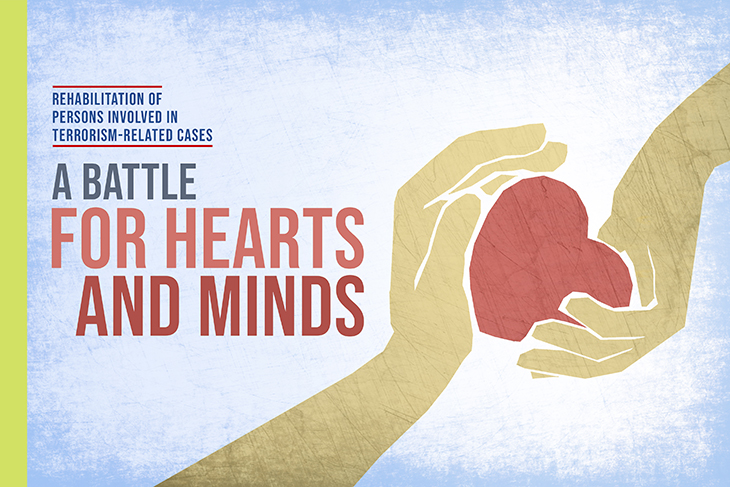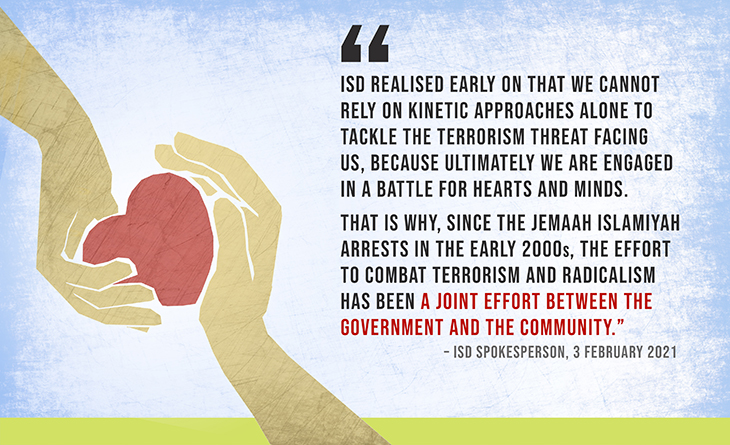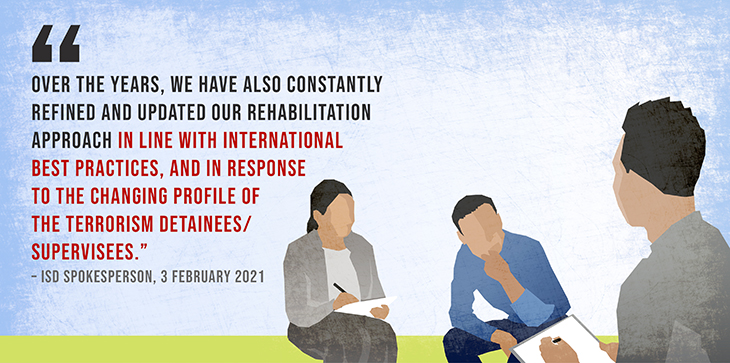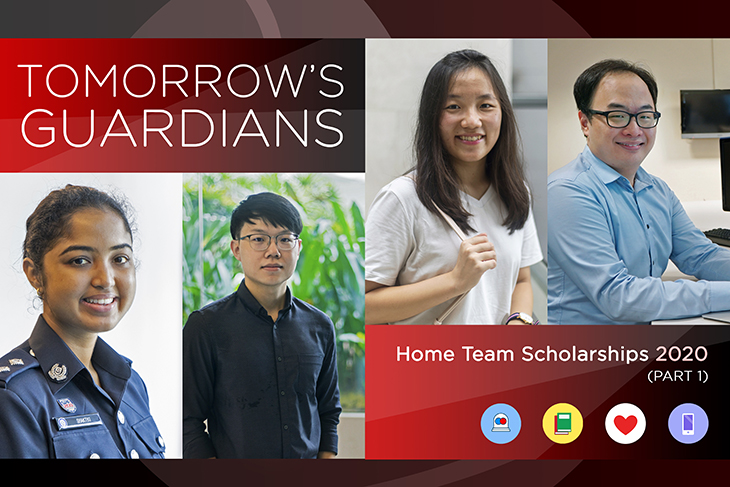
Following the announcement on 27 January 2021 that a
16-year-old Singaporean youth had been detained for planning attacks on two mosques, the Internal Security Department (ISD) shared how it has been
working with its community partners to rehabilitate individuals who are detained or issued with Restriction Orders
(RO) under the Internal Security Act (ISA) for their involvement in terrorism-related activities. Here are five
things you should know about Singapore’s approach.
1. It’s a holistic, intensive and long-term approach
After the Jemaah Islamiyah arrests in the 2000s, ISD partnered the Religious Rehabilitation Group (RRG) and the Inter-Agency Aftercare Group
(ACG) to formulate a holistic, intensive and long-term rehabilitation approach for individuals involved in
terrorism-related activities.

2. It's customised to address individual requirements
The approach comprises religious, psychological and social rehabilitation and is customised to
the needs of
individual detainees/supervisees, so that their propensity for hatred and violence, as well as their vulnerability
to radical influences, are properly addressed. This maximises their chances of successful rehabilitation and
reintegration into society. Aftercare support and continued supervision under the RO regime following their release
is also provided to minimise recidivism.
3. It's been refined over the years to deal with the evolving environment
As the profile of those dealt with for terrorism-related activities has changed over the years,
ISD has
refined its rehabilitation approach accordingly.

For example, since 2015, seven youths between 16 and 19 years old have been dealt with under the ISA. While priority
continues to be given to address ideological misconceptions that underpin radical mindsets, additional attention is
also given to address non-ideological factors that could have contributed to their radicalisation.
Such factors include their sense of belonging and identity, critical thinking skills to discern radical rhetoric
online and mental resilience to cope with life stressors. Efforts have also been made to enable these youths to
continue their education.
4. There's a mentoring programme to provide additional guidance and support to
youths dealt with under the
ISA
A mentoring programme tailored to meet the rehabilitation needs of these youths was introduced in 2016. This
mentor-mentee relationship continues after their release to ensure that they stay focused on pro-social goals and
have a positive role model.
5. It's done in partnership with the community, which plays a vital role in the
rehabilitation
process
Apart from providing religious counselling to individuals dealt with under the Internal Security Act (and to their
families), the RRG conducts regular community outreach efforts to strengthen Singapore’s immunity against
extremist ideas. The ACG has also partnered community organisations such as Persatuan Permudi Islam Singapore, Thye Hua
Kwan Moral Society and the Singapore Indian Development
Association to provide support to families of detainees and supervisees.
Keeping Singapore Safe and Secure
Singapore faces a range of security threats, among them the threat of terrorism. It is the task
of ISD to
confront and address these internal security threats. If you suspect that someone you know might be radicalised or
involved in terrorism-related activities, do contact ISD at 1-800-2626-473 for assistance.
Check out ISD’s
update on 9 February 2021 on cases under the Internal Security Act.





